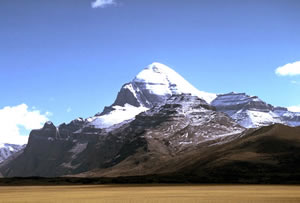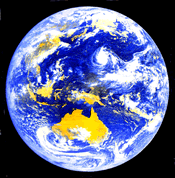UN Days August
Individuals and groups can help to make UN Days much more effective through meditation and prayer. On this site there is a meditation in support of the UN Days and information on ways to participate in the UN Days & Years Meditation Initiative
Here you will find information on the UN designated Days during August. Information provided includes some background, links to the UN site on the Day (where such a site exists), together with key thoughts for reflection.
9 August
INTERNATIONAL DAY OF THE WORLD'S INDIGENOUS PEOPLE
The observance of this Day by the UN (and, as a consequence, by a significant number of governments and peoples organisations around the world) is a sign of growing concern for the rights and welfare of indigenous communities.
In May 2002 a new United Nations body, the Permanent Forum on Indigenous Issues, met for the first time. The Forum gives indigenous a voice in the global community. Speaking at the closing session of the Forum's historic first meeting, UN Secretary-General, Kofi Annan, noted : I would like to ... say to all the world's indigenous peoples: "You have a home at the United Nations".
Kofi Annan concluded: The world's indigenous people are remarkably diverse -- as groups and as individuals. But there are strong bonds of solidarity and historical grievance. Many also have a deep and abiding reverence for the natural world. And many place great emphasis on spiritual practices. Among the traditions I find particularly powerful is the respect given to elders as carriers of wisdom, to women as carriers of language and culture, and to children as carriers of the identity that is transmitted to future generations.
Indigenous peoples make up an estimated one of every 20 members of the human family. I have no doubt that as new members of the United Nations family, you will make an immense contribution to the Organizationâs mission of peace and progress. On behalf of the United Nations family, I would like to pledge our strong commitment to your cause and your concerns.
See UN Permanent Forum on Indigenous Issues site and UN High Commissioner for Human Rights web site. .
In his message for this special Day in 2004,the Director General of UNESCO commented: " One of the remarkable specific features of indigenous peoples continues to be the outstanding wealth of their traditions, knowledge and skills, together with their forceful determination to pass these assets on to future generations. Thus, indigenous peoples still hold the key to unique traditional knowledge about their natural environment. To ignore that wealth and diversity would be to impoverish our humanity while cultivating a terrible feeling of frustration relating to their sense of identity."
For further information on the Day see the UN site and the UN Permanent Forum. Also the paper Justice as Healing - given by the Chairperson of the UN Working Group on Indigenous Populations, Dr. Erica-Irene A. Daes, on the first International Day of the World's Indigenous People. There is an excellent site on the Day for schools at the UN Cyber School Bus.
Key thought for reflection:
The reciprocity of the experience of life with the earth, with nature, with the places where the planet rests is natural. And in those places where life is deeply altered, where the quality of life is directed to other horizons, nature becomes shy not because she has impoverished herself, not because she has lost herself. Nature becomes shy because of our lack of care. Nature becomes shy because of our lack of attention. When people open their hearts and turn their attention (not the intellectual attention, but the one of the spirit) to a sun's ray that crosses the sky and touches the ground, they are restoring a subtle level of contact with life and nature. When the heart starts to beat again in unison with the cycle of the winds, the rain, the moon, this spiritual reintegration of the man with the place where he dwells starts to unveil again and starts to run vividly inward and outwardly.
Ailton Krenak
12 August
INTERNATIONAL YOUTH DAY
Today's society is the youngest ever; almost fifty percent of the world's population is aged 25 years or under. But societies are also ageing. It is estimated that by 2050 the population of people older than 65 will have almost quadrupled, while the proportion of children will have declined by a third. By the middle of this century, the old and the young will represent an equal share of the world’s population.
In December 1999 the UN General Assembly endorsed a recommendation, originally proposed by young people, that 12th August be declared International Youth Day. One of the aims of the Day is to promote wider awareness of the World Programme of Action for Youth (WPAY) . This Action Programme (adopted by the UN General Assembly in 1995) contains targets for action to be taken around the world in a wide range of areas affecting youth - areas covered include: education, employment, hunger & poverty, drug abuse, juvenile delinquency.
Young people should be at the forefront of global change and innovation. Empowered, they can be key agents for development and peace. If, however, they are left on society's margins, all of us will be impoverished. Let us ensure that all young people have every opportunity to participate fully in the lives of their societies.
Kofi Annan
For further information visit the UN Programme on Youth web site on the Day. See also the Global Youth Action Network (GYAN).
Key thought for reflection:
All who have meditated on the act of governing mankind have been convinced that the fate of the world depends on the education of youth.
Aristotle
23 August
INTERNATIONAL DAY FOR THE REMEMBRANCE OF THE SLAVE TRADE AND ITS ABOLITION
On this day humanity's achievement in abolishing the slave trade is celebrated.
In deciding to proclaim the 23rd of August of every year International Day for the Remembrance of the Slave Trade and its Abolition, UNESCO wished to inscribe in the memory of all peoples a tragedy that has been forgotten and little known and pay tribute to the slaves' relentless struggle for freedom. The uprising that took place in the island of Santo Domingo (present day Haiti and Dominican Republic) on the night of the 22nd to the 23rd of August 1791 shook the foundations of slavery to the core and marked the start of the process that led to the abolition of the transatlantic slave trade.
Koichiro Matsuura
Visit the UNESCO website on the Day. See also the excellent Anti-Slavery International site on Learning About the Transatlantic Slave Trade.
Key thought for reflection:
Until the emergence of Wilberforce and people associated with him, slavery was considered to be inevitable. Indeed people in all walks of life believed that slaves were essential for the maintenance of the economy. So widespread was this viewpoint that even a half-century later the United States would face a civil war on the issue. The process by which slavery was destroyed came about not only through education, an understanding of the human spirit and a deepening respect for the individual, but because those who were advocating the elimination of slavery upheld new values associated with the importance and sacredness of every human being.
Ted Noffs

